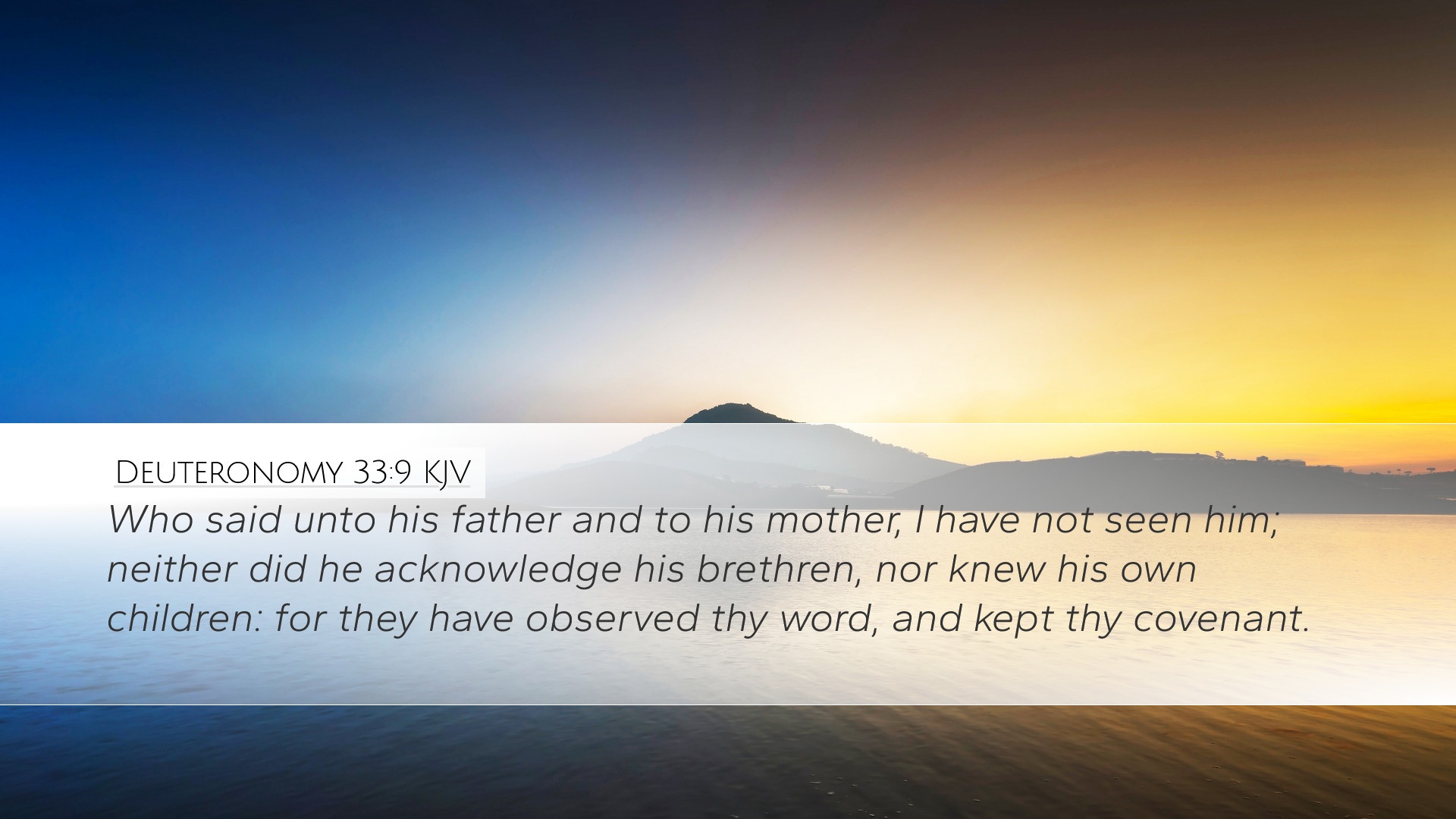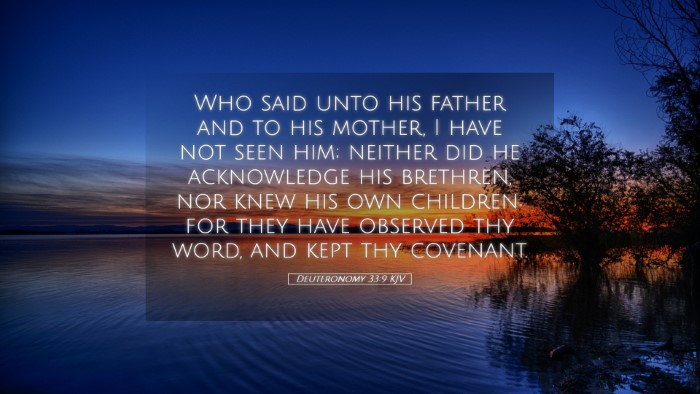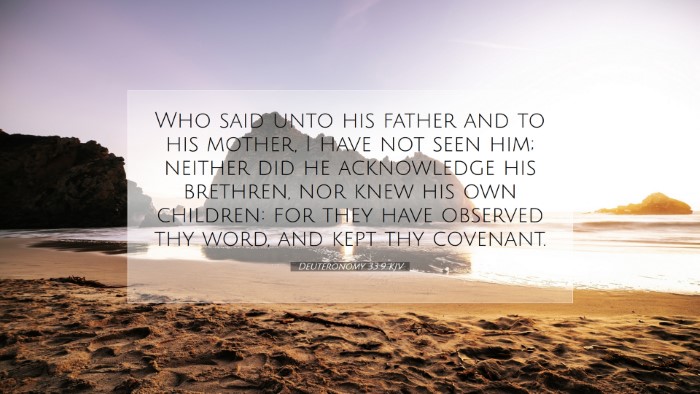Commentary on Deuteronomy 33:9
Deuteronomy 33:9 states: "Who said of his father and mother, I have not seen him; neither did he acknowledge his brethren, nor knew his own children: for they have observed thy word, and kept thy covenant." This verse speaks to the unique calling and dedication of the tribe of Levi, as well as broader themes of loyalty and faithfulness in the covenant community.
Contextual Analysis
This verse appears in the context of Moses' blessing of the tribes of Israel. Deuteronomy 33 details the blessings pronounced over the various tribes before Moses' death, with each blessing encapsulating the qualities and characteristics unique to each tribe.
The Role of Levi
The Levites were set apart for a special service to God. Unlike other tribes, they did not receive a territorial inheritance in the Promised Land. Instead, their inheritance was the Lord Himself, as they were chosen to serve in the tabernacle and later in the temple.
Reflection on Family Relationships
- Covenantal Priorities: The phrase "who said of his father and mother, I have not seen him" signifies a radical commitment to God's service. This indicates a prioritization of spiritual responsibilities over familial obligations. According to Matthew Henry, this reflects the true nature of spiritual devotion that may sometimes come at personal costs.
- Separation for Service: The Levites' dedication required a sense of separation from familial ties and earthly attachments. Albert Barnes elaborates that this was not a rejection of family but rather a different focus—serving God often demands sacrifices that challenge personal relationships.
- Faithfulness to God’s Covenant: The final part of the verse emphasizes that the Levites kept God's covenant. Adam Clarke remarks that this adherence indicates a profound integrity in upholding divine commandments, highlighting the Levites as exemplars of covenant faithfulness.
Theological Implications
This verse serves to underline several theological themes relevant to pastors, students, and scholars:
- God's Sovereignty: The Levites’ role illustrates God's sovereignty in choosing specific individuals and families for particular purposes, emphasizing that His plans often diverge from human expectations.
- Calling and Commitment: The distinct calling of Levi teaches about the importance of commitment to one's divine calling. The challenges of serving God often require an unwavering focus on obedience, as noted by Matthew Henry.
- Community and Interdependence: The Levites’ role in the community indicates that different people have different roles to fulfill, working collectively in the body of Christ. Understanding this dynamic helps foster a healthy community of believers.
Application for Today
For contemporary readers, Deuteronomy 33:9 challenges individuals to examine their own claims of loyalty to God's service versus personal desires or familial obligations. It invites personal reflection on what it means to be set apart for God's work and to remain true to one's commitments despite external pressures.
- Radical Discipleship: In a world filled with distractions, this verse calls for a radical approach to discipleship, where spiritual commitments take precedence.
- Assessing Priorities: Believers should regularly assess their own lives in light of their commitments to God, family, and community.
- Encouraging Covenant Faithfulness: The message encourages fostering covenant relationships within the church, urging members to remain dedicated to God’s word and to each other, echoing the Levites’ commitment as a model.
Conclusion
In summary, Deuteronomy 33:9 encapsulates profound truths about identity, service, and commitment to God. It illustrates the unique calling of the tribe of Levi and offers timeless lessons about what it means to live faithfully in accordance with God's covenant. Both individually and collectively, the body of Christ is called to reflect on these themes, seeking a deeper understanding of their spiritual commitments.


